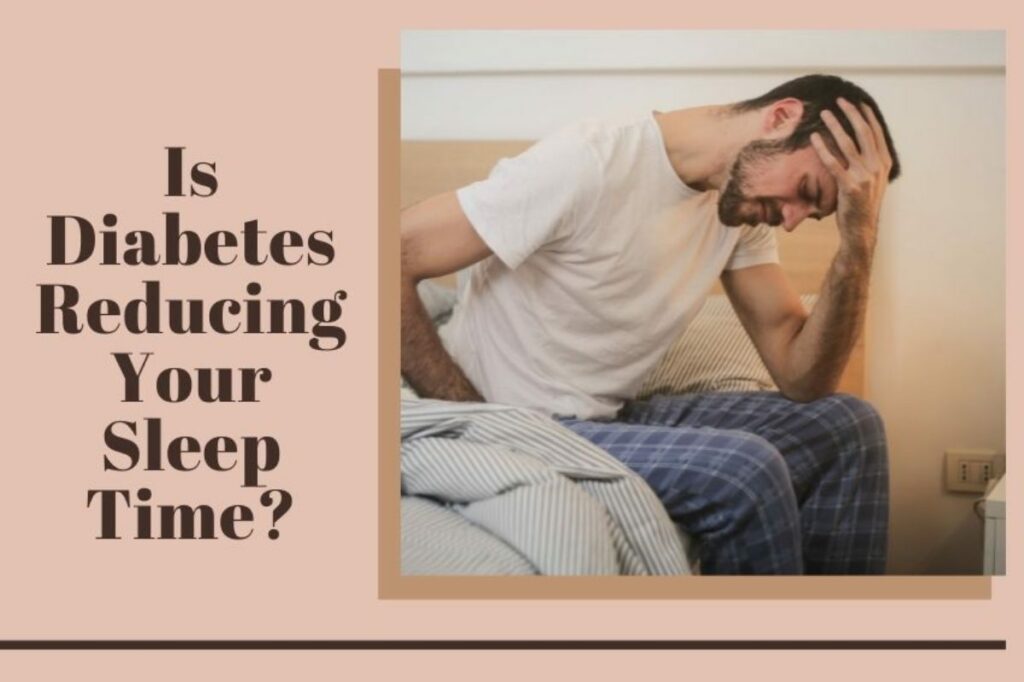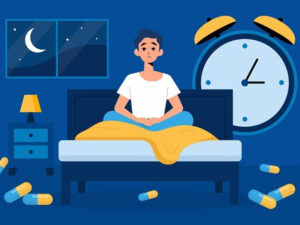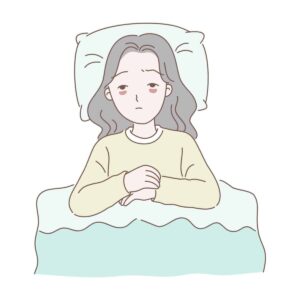Did you know that sleep problems are common in people with Diabetes? Studies have shown that up to 50% of people with diabetes have some form of sleep problem. This can be a major problem because a lack of good quality sleep can lead to sorts of health issues, including obesity and heart disease. In this blog post, we will discuss the relationship between diabetes and sleep problems and remedies to solve the problem.
Contents
Defining Diabetes And Sleep Problems
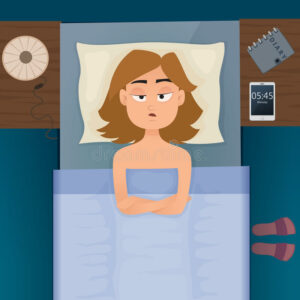 Diabetes occurs when your blood sugar is high. Blood sugar is your main source of energy from the food you eat. Insulin, a hormone produced by the pancreas helps food glucose enter your cells for energy. Sometimes the body doesn’t get enough insulin or doesn’t use it properly. Glucose then stays in the blood and doesn’t reach the cells.
Diabetes occurs when your blood sugar is high. Blood sugar is your main source of energy from the food you eat. Insulin, a hormone produced by the pancreas helps food glucose enter your cells for energy. Sometimes the body doesn’t get enough insulin or doesn’t use it properly. Glucose then stays in the blood and doesn’t reach the cells.
Sleep Problems are defined as conditions that affect sleep quality or length and affect a person’s ability to function properly while awake. These problems can contribute to other health problems and are also some of the symptoms of mental health problems.
Link Between Diabetes And Sleep Problems
 Sleep problems include insomnia or excessive drowsiness. Studies have found a link between sleep disorders and diabetes. Many Diabetic patients have sleep disorders due to irregular blood sugar levels.
Sleep problems include insomnia or excessive drowsiness. Studies have found a link between sleep disorders and diabetes. Many Diabetic patients have sleep disorders due to irregular blood sugar levels.
Researchers say sleep deprivation is a major cause of diabetes and can sometimes you can control it. Having diabetes does not necessarily affect your sleep. It’s a question of the diabetic symptoms you experience and how you deal with them.
Important Facts
- When your blood sugar is high, the kidneys are more receptive. which makes you urinate more often which causes sleep problems at night gradually.
- High blood sugar also causes headaches, thirst, and fatigue which can interfere with sleep.
- Sleep deprivation with hormonal changes affects appetite and weight. Those who lose sleep on a regular basis feel tired during the day and eat junk food which causes diabetes further.
- When your body has excess glucose, it absorbs water from the tissues. This can make you feel dehydrated and cause you to wake up and receive a glass of water.
- If you have diabetes, it’s normal to eat too much and get rid of sleep deprivation in an attempt to build strength with calories. It increases the amount of sugar in your blood and makes it more difficult to get enough sleep. For example Insomnia. It increases the risk of obesity which can increase your risk of developing type 2 diabetes.
The above mentioned are some significant facts about diabetes and sleep problems which you should understand to cope with the ailment and get it solved.
Common Signs
 Although Diabetes and Sleep Problems are different conditions, some of their signs tend to overlap. They are as follows:
Although Diabetes and Sleep Problems are different conditions, some of their signs tend to overlap. They are as follows:
- fatigue
- increased urination
- thirst
- weight loss
- difficulty sleeping
Although one type of anxiety disorder can be linked to the sleeping problem, diabetes is one of the most common. Learning the differences between these two diseases is very significant in the care and treatment of both.
Major Causes
There exist several factors which cause Diabetes and sleep problems. These ailments often tend to be together in many persons as some of the reasons are common. Some of them are :
Poor Diet
You gain weight when you take in more calories than your body needs, such as sugary foods and drinks. So you can see that if too much sugar increases your weight, your risk of type 2 diabetes increases. Eating less fiber, more saturated fat, and more sugar throughout the day disturbs quality sleep as well. It is found that food choices during the day significantly affect a good night’s sleep.
Obesity
One of the most significant risk factors for both diabetes and sleeping problems is obesity. Obesity increases your chances of developing type 2 diabetes and can also lead to Sleep Apnea, a condition in which you stop breathing for short periods during sleep.
Feeling Thirsty
Increased thirst is the most common symptom of diabetes. You may also urinate more frequently due to the consumption of a lot of water. It will become a hindrance to your quality sleep and thus create a sleeping problem cautiously.
Blurred Vision
Blurred vision means it’s harder to see the correct details than you see. Many factors can be linked to diabetes as they can indicate that your glucose levels are incorrect – too high or too low. Blurred vision can be caused by water in the lens of the eye. Further, studies have shown that sleep problems due to visual impairment can lead to sleep disturbances and abnormal sleep-wakefulness.
Sleep Apnea
When you suffer from insomnia/ sleep problems, you suddenly stop breathing several times during the night. When your body doesn’t get enough oxygen, your fat cells fight insulin and increase your glucose. This is called insulin resistance and glucose intolerance. When this happens, your body may not respond to insulin and you may not be able to absorb glucose, therefore leading to diabetes.
Hectic Schedule
Getting enough sleep can be costly when there is huge planning for school, work, gym, and your family. It can make you sleep less than you want. Many of you may not sleep well, and over time, the risk of type II diabetes may increase. If you have diabetes, there are chances of getting insomnia (sleeping disorder) as well.
Feeling Of Fatigue
Weakness is one of the most common symptoms of poor blood sugar control. Boost your energy levels by filling your blood glucose levels. If you have type 2 diabetes and feel tired, chances are there that you are suffering from this condition. Tiredness causes sleep problems also. Although people don’t sleep, they seem to be more tired than they are sleeping.
Common Sleep Problems in People With Diabetes
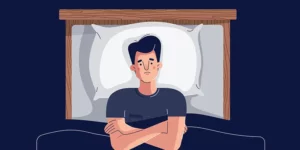
Lack of sleep increases levels of ghrelin, the hunger hormone, and decreases levels of leptin, the hormone we feel full of. In return for low energy, people who are sleep deprived are more likely to seek relief from foods that raise blood sugar and put them at risk of obesity, which is a risk factor for diabetes.
Insomnia
Insomnia is characterized by repeated anxiety about falling asleep. If you have high levels of anxiety and high glucose levels, you are at risk of insomnia. Obese people with type 2 diabetes are unable to sleep due to high blood sugar levels and diabetes-related symptoms which can cause insomnia.
Obstructive Sleep Apnea (OSA)
Obstructive sleep apnea is a sleep disorder in which a person stops breathing for certain periods of time at regular intervals throughout the night. OSA is more common in people who are overweight, as it often thickens the neck area and obstructs the airway. Type II diabetes increases the risk for sleep apnea by increasing the amount of fat around the neck and chest.
Restless Legs Syndrome (RLS)
Restless legs syndrome (RLS) is a sleep disorder that causes fatigue, often overwhelming to move the legs. This could be due to problems sleeping during the day, irritability, and driving.
People with type 2 diabetes develop restless legs, which are characterized by tingling. Due to nerve damage, the symptoms of generalized neuropathy are similar to those of RLS and include numbness, tingling, and pain in the extremities.
Narcolepsy
Type-I diabetes has been linked to an increased risk of narcolepsy. In type-I diabetes, the body’s immune system attacks the insulin-producing cells in the pancreas. In narcolepsy, the immune system attacks the hypocretin-producing cells in the brain. It is a chronic disorder that is caused by the loss of hypocretin-producing cells in the brain. There is a link between type-I diabetes and narcolepsy as both conditions are caused by autoimmune disorders.
How To Manage Diabetes With Sleep Problems?
Proper adjustment of blood sugar can improve sleep in people with diabetes. In addition, good sleep hygiene habits are especially important to handle diabetes and sleep problems. This includes both day and night exercises. Some of them are:
Self Help Formulas
- Take a diabetes sleep class
- Practice relaxation techniques such as deep breathing or progressive muscle relaxation
- Expose yourself to natural light during the day
- Create a cool, dark, and quiet environment for sleep at night
- Go to bed, and wake up at the same time each day, even on weekends
- Create a relaxing bedtime routine for yourself that includes winding down for 30 minutes before you turn out the lights. This could involve reading, taking a bath, or stretching.
- Avoid caffeine and alcohol before bed, as they can interfere with sleep.
- Avoid working or using electronic devices in bed. This will help you associate your bed with sleep and relaxation.
- You may also consult a doctor or diabetes educator to help help you you manage your diabetes and sleep issues. They can offer medication or other treatments if necessary
- Regular exercise helps you lose weight and restore insulin function in the body. It also strengthens the muscles to use blood sugar for strength and reduces muscle cramps which improve sleep for many people.
- Practice stress managing techniques say yoga and meditation also improve insulin resistance in chronic diabetes. Besides, it ensures quality sleep also.
These are some self-care tips to handle diabetes with sleeping problems. If you are struggling to cope with the ailment, you can try practicing any of these remedies.
Therapy
Therapies can be very fruitful if you want to get rid of Diabetes and Sleep Problems. The choice must be wise. You need to select which suits you perfectly and remain consistent with the right form to get the maximum desired results out of them.
For Diabetes
The following home remedies are beneficial to manage diabetes:
- Hydrotherapy: The use of water to heal wounds and other conditions is mentioned in many cultures around the world. As an important part of our body is made of water, it is also one of the most direct ways to control our health. Hydrotherapy improves the metabolic rate and also helps control blood sugar levels.
- Coldwater Bathing: Bathing in cold water improves blood circulation and improves social well-being. It is widely used to treat symptoms associated with high blood pressure. Therefore, a cold water bath helps to reduce the risks of type 2 diabetes.
- Massage Therapy: Another wonderful way to fight diabetes is massage. Massage Therapy lowers blood glucose levels, hemoglobin levels, and diabetes in the legs.
- Sun Bath: Sunbathing is associated with the treatment of many ailments and the initiation of detoxification. It is important for the production of vitamin D in our bodies. Exposure to the heat of the sun at specific times and occasions can be very beneficial as it reduces the risk of type 2 diabetes.
- Morning Walk: Doctors prescribe morning walks to maintain good health. This is a good exercise that people of all ages, genders, and bodies can do. Diabetes patients should walk briskly for 30 to 45 minutes to get their blood sugar levels under control.
For Sleep Problems
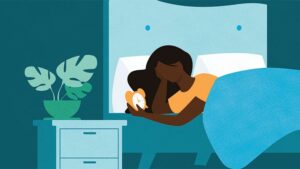
Sleep therapy is designed to enhance the quality of your sleep. The most widely used and studied method of treating insomnia is Cognitive Behavioral Therapy (CBT). It is the gold standard for treatment-based sleep disorders, “says Romanoff. This treatment helps identify negative sleep-related thoughts and replaces them with healthy habits and behaviors. A therapist specializing in CBT may use various techniques to improve your sleep quality. Some of the techniques are:
- Sleep hygiene
Improving sleep hygiene involves building healthy sleep habits and habits. This means changing the early behaviors of sleep-deprived behaviors, such as reducing alcohol, caffeine, smoking, and increasing exercise. It also focuses on creating a similar sleep-wake plan. - Modifying sleeping area
Your therapist may recommend modifying some of your sleeping areas to make them more comfortable and keep you asleep. For example, it helps to keep the room quiet, dark, cool, and hide the clock. - Stimulus control
Stimulus control involves eliminating the symptoms that cause the brain to fall asleep. For example, sitting on the couch and watching entertainment can encourage you to join the bed. The therapist may recommend leaving the bedroom if you can’t sleep within 20 minutes and returning only if you feel sleepy. - Paradoxical motivation
CBT uses a technique called paradoxical intent. This includes efforts to stay awake. This works because you don’t have to worry about falling asleep. Relieving stress and anxiety makes it easier to fall asleep.
Medications
 Depending on the condition, doctors may recommend sleep therapy for people with diabetes or other sleep patterns. They may choose to do a polysomnography or sleep study to see if sleep disorders are causing their sleep problems. Targeted treatments such as CPAP devices can cure Secondary sleep disorders. You can try to refer some medications ( after confirming with your doctor) as well to cure diabetes and sleeping problems. Some of the most effective and commonly prescribed medications include:
Depending on the condition, doctors may recommend sleep therapy for people with diabetes or other sleep patterns. They may choose to do a polysomnography or sleep study to see if sleep disorders are causing their sleep problems. Targeted treatments such as CPAP devices can cure Secondary sleep disorders. You can try to refer some medications ( after confirming with your doctor) as well to cure diabetes and sleeping problems. Some of the most effective and commonly prescribed medications include:
- Metformin
- Pioglitazone
- Glimepiride
- Acarbose
These medications can help you control your blood sugar levels and also improve your insulin sensitivity. If you’re struggling to get a good night’s sleep, talk to your doctor about whether one of these medications could be right for you. With the help of the right prescriptions, you can get a good night’s sleep and also control your diabetes and sleeping problems too.
If you are not able to seek any solution, you can contact Mantra Care where you can directly talk to your therapist. Book your first online slot and take the aid of trained professionals.
Conclusion
It is concluded that Diabetes is interlinked with Sleeping problems. One needs to be aware of the similarity as well as differences between the two ailments so that proper remedies can be practiced to get rid of both. To lead a healthy lifestyle, it’s important to follow healthy practices in routine as well. Eliminate those practices and diets which affect your body and life negatively as soon as possible to stay on the safer side. Inculcate good habits and avoid those making your body as well as life degrading. After all, a sound mind lies in a sound body only.
Do you want to get rid of diabetes and sleep problems? Join our online diabetes consultation program or You can book your online therapy session with expert therapists at MantraCare.
